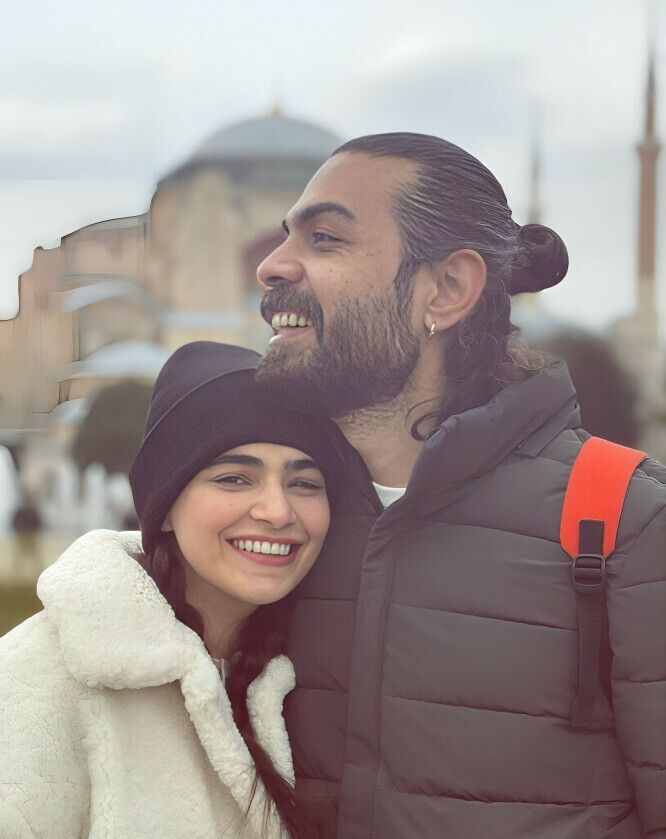Filmmaker Shehzad Hameed's latest documentary takes on the rise of Islamophobia
Shehzad Hameed Ahmed has won numerous awards for his previous documentaries and the latest one tackles xenophobia against Muslims.
In the aftermath of xenophobic physical and verbal attacks on immigrant communities such as the Christchurch mosque shootings, it is important to understand how white supremacist movements work, and how they are growing increasingly racist towards Muslim immigrants.
Shehzad, "went on a journey from Australia, Europe and America to investigate the methods white supremacists rely on to appeal to their followers to subscribe to their chilling worldview," to film his documentary Whiter Shade of Terror.
Images got in touch with the award-winning filmmaker to know about his recent project.
Images: There have been a lot of documentaries made on xenophobia faced by immigrants. What makes your documentary different from those in terms of how it covers xenophobia?
Shehzad Hameed Ahmed: Xenophobia, anti-immigrant sentiment, or racism has always existed as early as the Greek civilisation. It's not going away anytime soon either as evident by the Christchurch attacks or Trump's Muslim ban. We've got to live with this reality and that's why Whiter Shade of Terror is unique.
It explores and investigates how white supremacist attitudes towards immigrant Muslims are now becoming more bold, more global, and interconnected through the use of social media. Aiding their narrative are far-right political parties and neo-Nazi groups that are often well funded. The Council of American Islamic Relations estimates $206 million were distributed to think tanks that promoted the idea that American Muslims are terrorists.
The documentary also takes you into the world of white militias and anti-Muslim organizations, a place where I was personally a bit stressed since I'm Muslim and I didn't know how they were going to react. The aim was to expose how they think and function, and why easy access to guns in America is helping their cause. But there are heartwarming stories in this documentary as well which make the viewers realise that all is not lost.
Images: You mentioned how refugees are often considered a threat to European values in Europe. What do you feel is the reason for that? What steps can be taken to mitigate this?
Shehzad: There's been a massive rise in Muslim immigration to Europe especially after the wars in Iraq and Syria. These were forced migrations where people, mostly Muslims asylum seekers, went to Europe for safety; not to integrate into Europe. Governments in European countries were slow to respond to this. This failure to integrate refugees has caused massive social upheaval in European societies.
As a result of this friction between two very different lifestyles, many second-generation Muslim immigrants have joined global jihadist groups to find their identity or relate to power groups who can protect them. Nearly 800 home-grown ISIS fighters were produced by European countries alone.
I think western societies need more sensitisation when it comes to refugees and come up with orientation programs so that these refugees can be eased into their new countries. Existing Muslim organizations in European countries need to play a more active role in integrating these communities, help with language, cultural assimilation.
Images: Having been abroad, do you feel personally affected by the issue that you have portrayed in your documentary?
Shehzad: Having studied in America, I've seen xenophobia first hand when immediately after the Boston Bombings, I was asked not to wear a backpack or wear clothes similar to the bombers in order to protect myself from hate crimes which were happening in New York everywhere.
But traveling around the world for my documentaries have given me the opportunity to bond with alien cultures and tell them how similar we really all are. Be it Egypt or Norway or Indonesia, people generally close themselves up upon seeing an external culture precisely because they can't understand it. It takes time and better communication to fill those gaps.
Food and music play a big role in bringing cultures together as has been the case for thousands of years in human history.

But xenophobia doesn't only exist in white-majority Western countries. It's alive and kicking in Muslim countries as well. Muslim immigrants from Rakhine weren't welcomed in most Muslim countries. Pakistanis view immigrant Afghans in a negative light too. So its the whole world that needs to educate itself about foreign cultures and economic migration.
In the end, one needs to realize that no one has been able to stop economic migrant over so many centuries and building walls won't help anyone. Instead, diversity in cultures needs to be celebrated by governments, the media, and societies at large, be either in Asia or the West.
Images: What role do you think filmmakers and opinion influencers like you can play in catering to the plight of immigrants?
Shehzad: Filmmakers need to be bold about their content. They are the drivers of greater communication and we need to speak to, and at times, confront hate groups. It is crucial for human survival. If we don't do it, who will? I love spending time with people like the Taliban in Ghazni or the III Percenters in Georgia to understand their grievances which mostly emanate from ignorance about the 'other'. This 'otherisation' can only end when we start talking.
You can watch the doc here.













Comments